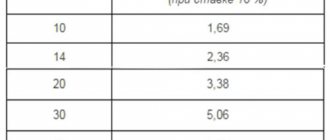Who is considered a civil servant by law?
Presidential Decree (PD) No. 1141 of September 20, 2010 defined a list of positions that are classified as civil servants. This:
- Government positions (GD) of the Russian Federation.
- State Duma of the constituent entities of the Russian Federation
- Federal civil service positions approved by UP No. 1574 dated December 31, 2005.
- Civil service positions of the constituent entities of the Russian Federation, approved by their legal acts.
- State Duma, approved by UP No. 33 dated January 11, 1995.
- Positions of prosecutors.
- Military positions.
- Positions of tax police employees (federal authorities).
- Positions of employees of the customs authorities of the Russian Federation.
- Municipal positions, etc.
The entire list of positions related to civil servants is listed in UP No. 1141, which is freely available for review. There are 18 positions in total, some of which also include additional lists.
All positions that are counted as civil service entitle employees to additional benefits in receiving pensions. The calculation of pensions for civil servants starts at 45% of earnings and can be calculated up to 75% of earnings.
Who is entitled to receive a civil servant's pension?
The procedure for admission, passage and release from civil service duties in our country is strictly regulated by current legislation. Thus, it gives a clear definition of which employees of which structures should be considered civil servants, and divides them into two categories.
Who are federal civil servants?
First, let's look at who is considered to be government employees and what specific professions can be included in their list. Federal state civil servants mean those employees of federal state civil institutions who, at the same time, receive monetary payments in connection with the performance of assigned duties and positions.
In other words, these are those citizens who occupy ordinary government positions and work exclusively in official positions.
Such employees include the following citizens:
- Law enforcement officers, for example, such as police officers.
- Military personnel, as well as those units that directly relate to them.
- Workers of the fire and tax services, as well as organizations whose responsibilities include maintaining law and order in the country.
- Employees of various regional institutions whose responsibilities directly include providing assistance and support to the local population.
A large number of benefits are also provided to these types of citizens. All of them are directly related to the fact that upon retirement they are entitled to a whole list of additional privileges. Obtaining these privileges is also associated with performing conscientious and high-quality work and serving in positions held.
One of the benefits includes state allowances provided that you have a minimum work experience, which is equal to 15 years of service. And the amount of the bonus directly depends on the length of the length of service, since the larger its size, the more money is accrued. However, if there is a minimum type of experience, the bonus will be almost half of the employee’s previous salary.
Civil servants of the constituent entities of the Russian Federation
These are persons performing labor functions in regional authorities, whose activities are supported by funds from regional budgets.
Not all employees working in state and regional bodies are civil servants, but only among them who occupy relevant positions.
Thus, only they have the right to a long-service pension.
Rules for calculating the size of pensions for municipal employees
Calculations to understand what the long-service pension for municipal employees will be, lead us to a figure equal to 45% of the average monthly salary, excluding various types of social benefits and other additional payments. The specific amount of payments is established by the relevant local law.
At the same time, the amount of pension payments of a municipal employee cannot be higher than the amount of monthly monetary compensation of a state civil servant of a constituent entity of the Russian Federation.
For each year of work more than the required norm, payments will increase by 3% up to an upper limit of increase of 75% of the average salary of a civil servant, which is calculated based on the average income for the last year of service. But these figures may vary from region to region.
The total amount of the final pension to the fixed part of the municipalities includes:
- allowances for professional duties;
- percentage of salary;
- allowances for the percentage of annual indexation;
- storage part.
When calculating payments, the official salary corresponding to a certain class rank is taken into account. For each specific subject of the Russian Federation, the calculation procedure may be different. The local board of each subject itself develops a system for calculating pension payments.
Federal Law No. 143 - the main bill
The amendments to the Federal Law on raising the retirement age for civil servants dated November 15, 1997 N 143-FZ, signed by the president, which sets out the new procedure for pension provision for civil servants, have several main provisions:
- The generally established retirement age is increasing for persons holding government positions in the Russian Federation, constituent entities of the Russian Federation, as well as those in municipal service. The increase will occur by 5 years for men and 8 years for women;
- the retirement age will be raised gradually, increasing by 6 months every year;
- the required work experience for civil servants is also increasing from 15 to 20 years, in connection with which amendments have been made to the law “State pension provision in the Russian Federation”;
- constituent entities of the Russian Federation can independently make changes that increase wages at the expense of local budget funds, as well as adjusting the age limits for civil service employees;
- persons who acquired the right to receive an old-age insurance pension before the approval of the amendments do not fall under the law;
- deputies of the State Duma or members of the Federation Council will begin to receive monthly supplements to their old-age or disability pensions after five years of civil service.
Changes in 2021
As for changes, they never cease to overtake the pension sector. Before people have time to recover from one statement, something new comes into force. The first thing that has changed is the retirement age.
If earlier there were rumors that they would make an exception for civil servants and would not raise them, now they have been officially refuted. But there is also good news, which is that pension payments will be indexed. And these positive trends will continue for several years.
Types of pension benefits
The procedure for calculating payments directly depends on the period of time worked and the type of work activity. Retirement benefits may be calculated based on:
- length of service - special labor experience in a municipal or state body in a certain position;
- paid insurance premiums for the period of work at non-state facilities. Payments in this case are transferred from the Pension Fund treasury.
Important! Longevity benefits are awarded subject to the completion of a minimum length of service and achievement of the appropriate retirement age.
Insurance pension for civil government employees in 2021
A civil servant, like any other citizen of the Russian Federation, will be assigned an old-age insurance pension when he reaches three criteria:
- Age.
- Insurance experience.
- Individual pension coefficient.
However, this is where the similarities end and the nuances begin.
The retirement age for civil servants in the civil service is regulated by Federal Law No. 400 dated December 28, 2013, namely Appendix No. 5 to it. The retirement age of civil servants in Russia from 2021 is 56 years for women and 61 for men, with an annual (until 2032) increase of six months. That is, up to 65 (for men) and 63 years (for women).
The insurance period (in this case) is the total time of work in federal, regional or municipal positions with insurance contributions to the Pension Fund of the Russian Federation. In 2021, the required minimum of such experience is nine years with an annual (until 2024) increase by a year, up to 15 years. The periods of work that are included in the relevant length of service are stated in Art. 11 and 12 Federal Law No. 400 dated December 28, 2013. Its duration can be calculated according to the rules from Art. 13 and 14 of the same Federal Law.
The individual pension coefficient is measured in points, its value is determined according to Appendix No. 4 to the same Federal Law 400. In 2021, its required minimum is 13.8 points, every 12 months (until 2025) it increases by 2.4 points, up to 30.
The conditions for assigning insurance pensions are set out in more detail in Art. 8, 35 Federal Law dated December 28, 2013 No. 400. The formula from Art. 15 of this Federal Law.
Civil servant experience for pension. What are the features of pension provision for civil servants?
Federal civil servants (FGS) are persons who ensure the stability of the functioning of the country's structures and receive remuneration from the federal budget.
Pension benefits are paid to civil servants in the form of an additional benefit assigned to the old-age pension. The amount of pensions for civil servants depends on the official’s rank, position and length of insurance coverage.
In this article we will tell you how pensions are calculated and processed for federal civil servants in Russia.
Retirement age
The reform affected the requirements not only for special experience, but also regarding the age threshold for entering a well-deserved retirement. The retirement age will be increased by 6 months per year until 2021. Starting from 2022, the growth rate will be 12 months annually. Thus, in 2028, male civil servants will be able to retire upon reaching their 65th birthday, and female employees will be able to retire at 63 from 2034.
| Time of birth, year | Sk. will be years | When to retire. | Points |
| 1962, I-VI months. | 55,5 | 2nd half year. 2017 | 11.4 |
| 1962, VII-XII months. | 1st half year 2018 | 13.8 | |
| 1963 | 56 | 2019 | 16.2 |
| 1964, I-VI months. | 56,5 | 2020 2nd floor. | 18.6 |
| 1964, VII-XII months. | 2021 1st floor | 21 | |
| 1965 | 57 | 2022 | 23.4 |
| 1966 | 58 | 2024 | 28.2 |
| 1967 | 59 | 2026 | 30 |
| 1968 | 60 | 2028 | |
| 1969 | 61 | 2030 | |
| 1970 | 62 | 2032 | |
| 1971 | 63 | 2034 |
The retirement age for male civil servants changes as follows.
| Time of birth, year | Sk. will be years | When to retire. | Points |
| 01.01.1957-30.06.1957 | 60,5 | II half year 2017 | 11.4 |
| 01.07.1957-31.12.1957 | I half a year 2018 | 13.8 | |
| 1958 | 61 | 2019 | 16.2 |
| 01.01.1959-30.06.1959 | 61,5 | 2020 II half. | 18.6 |
| 01.07.1959-31.12.1959 | 2021 I half. | 21 | |
| 1960 | 62 | 2022 | 23.4 |
| 1961 | 63 | 2024 | 28.2 |
| 1962 | 64 | 2026 | 30 |
| 1963 | 65 | 2028 |
If a person does not fit into the established age limits, but has 25 years of experience as a civil servant, he can also qualify for a payment. However, the work book must contain a record of continuous work for 7 years.
Age benefits for retirement for civil servants
Each region of the Russian Federation has the right to independently establish a list of benefits when assigning pensions to civil servants. These include:
- supplement to pension payments to civil servants;
- preservation of state guarantees;
- free medical care;
- providing vouchers to a health facility or monetizing those vouchers that were not used.
For example, the legislative act of Nizhny Novgorod dated June 24, 2003 number 48 defines a pension supplement for complete loss of ability to work. Samara Legislative Act No. 19 of March 13, 2001 established a monthly supplement equal to 45-75 percent of the pension.
Starting this year, the service life for obtaining a preferential exit will be 16.5 years, whereas previously it was 16 years.
Has the age increased as a result of the reform?
In 2021, Russia is undergoing a reform of the pension system, which in general terms involves the establishment of more complex criteria for assigning financial support. The changes also affected those employed in the civil service.
Thus, the age when an official has the right to apply for payment of financial support will gradually increase . The result of the reform will be that by 2028 men will retire at 65 years old, and women in 2034 at 63 years old.
Civil servants
When acquiring the right to receive an insurance pension before January 1, 2021 (with work experience of more than 15 years), a civil service employee does not fall under the law increasing the retirement age. It is also important to know that the length of service will not include maternity leave, sick leave and unpaid leave.
The Office of the President of the Russian Federation stated that a trend towards increasing pensions in the future will also appear for persons who are not civil servants.
Managers
For senior managers, the retirement age has been increased even further: now, to be able to receive an increased old-age insurance pension, you need to work until you are 70 years old. In their case, a fixed-term service contract will be concluded for 5 years. The measures were taken in connection with the reduction of pension fund expenses, as well as to retain valuable employees with extensive experience in their places.
An official can retire on a general basis at the age of 55 or 60, but at the same time he will lose a fairly large allowance due to him for working for the state apparatus of power.
What are the features of pension provision for civil servants?
Pension provision for civil servants includes a long-service pension and an additional payment from an insurance pension or disability pension, if the citizen is entitled to one. The service pension, in turn, is calculated based on average monthly earnings upon dismissal.
Pension provision for state civil servants: structure
A long-service pension is assigned to federal civil servants (municipal employees are equated to them in this regard) who have reached retirement age and have a certain length of service in state (municipal) positions. Pension rights for civil servants of the constituent entities of the federation are established in regional laws on civil service.
The long-service pension is paid from the budget of the Russian Federation, region or municipality.
In addition, a pensioner can acquire the right to the insurance part of a labor pension for old age or disability (from 01/01/2015 - insurance pension for old age or disability) from the Pension Fund of Russia (PFR), if he worked in other places besides the civil service and insurance was paid for him contributions.
As a general rule, you can choose only one type of pension for civil servants : either a long-service pension or an insurance pension.
However, a civil servant who has settled on a long-service pension can also receive a share of the insurance pension.
Some federal subjects and municipalities have provided for the possibility of additional payment from the state if a former civil servant has registered for an insurance pension with the Pension Fund. For example, this is established by Moscow Law No. 3 of January 26, 2005 On the State Civil Service of the City of Moscow for employees with a length of service of 12.5 (men) or 10 (women) years.
This additional payment is an additional guarantee of the rights of civil servants.
Who is entitled to a long-service pension for civil servants?
To assign a state long-service pension to a civil servant, several circumstances must coincide:
- reaching the retirement age of 55 (women) and 60 (men) years;
- having at least 15 years of public service experience;
- work in the civil service for at least 12 consecutive months before dismissal;
- dismissal through no fault of the citizen:— by agreement of the parties;— of one’s own free will;— due to circumstances beyond the control of the parties (for example, after reinstatement of another employee by court);— in connection with a change in the terms of the contract;— upon reaching the maximum age of civil service ;
— to reduce or liquidate a government agency.
You can receive a service pension without 15 years of service. For example, for persons who resigned from a managerial position in the civil service after the expiration of the contract, the length of service is 12 months, and continuous work in a government position before dismissal is 1 month. There are other options when you can receive a long-service pension with a short period of public service.
Art. talks about this in detail. 7 of the Law on State Pensions.
The general rule for registering a pension for civil servants is the attainment of the retirement age established for the old-age insurance pension. There are situations where age is not taken into account.
To do this, it is necessary, having 25 years of civil service experience (of which 7 are continuous before dismissal), to resign from public office of your own free will.
The second general condition for assigning a long-service pension has no exception - a citizen must not work in a government position while receiving such a pension.
Long service pension amount
With a minimum length of service of 15 years, the pension is calculated as 45% of salary. However, this 45% includes not only the civil servant’s long-service pension, but also the insurance pension due to the citizen.
Only those parts of the insurance pension that were earned after the appointment of the state long-service pension are not taken into account, as well as preferential additional payments to the fixed part of the insurance pension (for the age of 80, for disabled family members).
Each year of service over 15 years increases the pension by 3%, but the increase is limited: the maximum amount of a civil servant’s pension, together with his old-age or disability pension, should not exceed 75% of average monthly earnings.
The procedure for calculating service pensions for civil servants
When determining the average monthly earnings for calculating a pension, you need to take the income for the last 12 months before dismissal or the onset of retirement age, but within 2.8 of the salary for the corresponding position (for positions where payment is in the form of monetary remuneration - 0.8 of that).
Periods of illness or leave without pay, maternity leave (for pregnancy, child care, etc.) are not taken into account.
If there are no such periods in the last year of work, then the average salary is calculated by adding the monthly income for the year and dividing the amount by 12. If there are such periods, the income for the year minus sick leave and maternity benefits is divided by the number of working days and multiplied by 21.
For residents of the Far North and other preferential areas, the long-service pension can be increased due to regional coefficients established by resolutions of the USSR Council of Ministers.
The procedure for calculating the share of the insurance pension
The share of the insurance pension is that part of it that can be received by a pensioner who has received a long-service pension.
Due to changes in pension legislation from January 2015, the calculation procedure is provided for in two laws at once:
- partially repealed from 01/01/2015 Federal Law On Labor Pensions (in Article 17.1)
- and the new Federal Law On Insurance Pension (in Article 19).
First, the share of the insurance part of the pension is calculated according to the Law on Labor Pensions. It is equal to the ratio of the amount of the estimated pension capital (for the period from the appointment of a long-service pension to the application for an old-age pension) to the period of expected payment in months.
The calculation then continues under the new legislation. It is very complex: it includes several coefficients (also calculated individually for each pensioner) and an already known share of the insurance part of the pension.
If a citizen continues to work, his calculated pension capital for the insurance pension increases - and then the share of the insurance pension paid in addition to the long-service pension is recalculated upward.
How public servants' pensions work in practice
Unfortunately, the above system, although complex, is not always effective.
For a long time, the salaries of civil servants were extremely low, and citizens did not apply for a long-service pension, because its meager amount did not reach the insurance part of the labor pension due to a former civil servant.
The complex system of grounds for receiving a pension based on length of service became the reason for numerous lawsuits: state or municipal authorities and the pensioner could not figure out whether a citizen had the right to a pension without the participation of the court.
A unique judicial practice has also developed in relation to frequently amended municipal regulations.
For example, a municipality has changed its pension rules and is reassigning pensions already assigned for life to municipal employees downward.
The court here supports the side of the municipality, essentially legalizing the retroactive effect of a law that worsens the rights of a citizen.
This is motivated by the fact that a pension under local law is only an additional guarantee.
Thus, civil servants have the right to a long-service pension if they have a certain length of service in their position and reach retirement age, but only after leaving public service.
When calculating the length of service pension, the insurance pension earned by the citizen is taken into account.
Unfortunately, the complex system of grounds for paying long-service pensions constantly becomes the cause of disputes between retired civil servants and the body that assigns them a pension.
A particularly problematic issue is the additional guarantees in the field of pensions provided for by regional or local laws.
Source: https://moj-doktor.ru/yurist/kakovy-osobennosti-pensionnogo-obespecheniya-gosudarstvennyx-sluzhashhix-2
Conditions for assigning a pension
Civil servants have the right to receive a disability and old-age pension, and members of their families may also qualify for survivor benefits.
To apply for a pension benefit, you must simultaneously meet the following criteria:
- A citizen must spend at least 15 years in public service;
- before dismissal, 12 months were spent in the workplace;
- the dismissal occurred due to staff reduction, or the federal government was liquidated, upon reaching the age limit, or due to poor health, or at the request of the civil servant himself.
To receive an increased pension as a civil servant, you cannot continue working in similar positions after retirement.
What is included in the length of service in the state civil service?
First, let's look at what the term experience means. It represents the full period of time during which a citizen held a certain position and performed his job duties.
Length of service plays the most important role when retiring, since it can affect its size and also when exactly a person can achieve the right to retire. Experience is divided into two types and can be general and special. But for most organizations, including government ones, it is calculated a little differently. By total length of service we mean the full period of time during which a person performed work. And it doesn’t matter where exactly he worked and what area he was in.
As for the special, in this case only that period of work activity is taken into account during which the person performed work exclusively in his professional field.
Now let's look at what is included in the length of service for civil servants upon retirement. This includes the following:
- Work experience, the duration of which must be at least 15 years;
- Well-deserved leave granted annually to recuperate;
- The period of time spent on sick leave.
Good to know! It should also be noted that these requirements are valid only for those organizations that require employees to have special professional experience upon retirement. As for the general thing, there are more lenient requirements for it.
Minimum length of service in civil service for granting a pension
As mentioned earlier in this article, in order to obtain the right to retire, it is important not only to reach the retirement age, which, as is already known, has increased, but also to have a minimum amount of work experience. Because if you do not have work experience in a certain field, namely, working all this time in the civil service, you will not be able to retire until you have gained it.
According to the latest changes made to the pension system for civil servants, the minimum length of service must be at least 15 years. And all this time you had to work in your professional field. If the total amount of your experience is 15 years, but you did not work all this time in your field of activity, then this experience is not taken into account and is not complete.
It should also be noted that government employees are also entitled to additional benefits regarding their professional work experience. If the size is 15 years, then the additional payment is 45% of the previously received wages.
If your experience is more than 15 years, then for each additional year you are entitled to a 3% bonus.
Registration of long service and disability pensions simultaneously in the Russian Federation in 2021
If there is a conclusion from a medical commission, a citizen with a disability has the right to apply for a disability pension if he has at least 1 day of official work experience. At the same time, age does not matter for the assignment of financial support from the state. The procedure for applying for state support in connection with the appointment of a disability group and length of service is presented as follows:
- Collection of documentation - it includes SNILS, passport, ITU extract on the assignment of a disability group, work book and other document confirming the insurance period. You will also need an application for an insurance pension in connection with the assignment of a disability category - the form can be obtained from the Pension Fund of the Russian Federation. You are also required to fill out an application indicating the method for delivering the pension.
- Contact the territorial division of the Pension Fund of the Russian Federation with the specified package of documents. Upon reaching age, you are required to work in the civil service for 16 years.
- Making a decision on granting a pension. This will take approximately 15 working days. Funds begin to arrive on the 1st day of the month after the reporting period in which the application was submitted.
Each region sets its own rules for assigning two amounts of pension payments at the same time. The following benefits are available to them:
- assignment of a supplement to the assigned pension payment;
- maintaining guarantees;
- free medical care;
- vouchers for sanatorium treatment, provision of compensation for unused vouchers.
The rules for registering pensions are regulated by Federal Law No. 166 “On state pension provision in the Russian Federation”.
Is it possible to remain in service beyond the age limit?
We figured out what the retirement age is in Russia for civil servants. Now let’s answer the question: can an employee who has reached the maximum years of service continue to work. The maximum age for civil service is 65 years. A civil servant of this age who has the status of assistant (adviser) can have his service term extended with his consent (up to a maximum of 70 years). The decision on this is made by the employer's representative. As a result, the service life of such an official is extended until the end of the powers of his leader. For example, heads of government agencies have assistants (advisers).
For a person in the status of head of the highest group of civil service positions, his service period can be increased to a maximum of 70 years. The corresponding decision, with the consent of the civil servant, is made by the government agency or official who appointed him to the post.
There is another option to continue working in a government agency: an employee at the age limit can be transferred to work not related to the civil service. Such transfers occur by decision of the employer’s representative with the consent of the transferred person, who continues to work in a government agency under a fixed-term employment contract.











